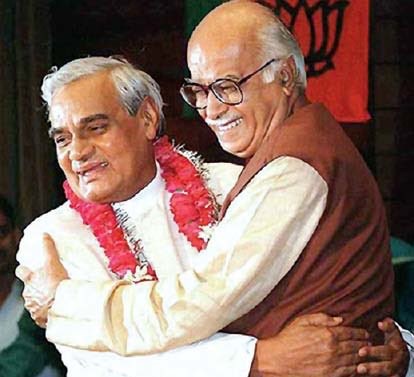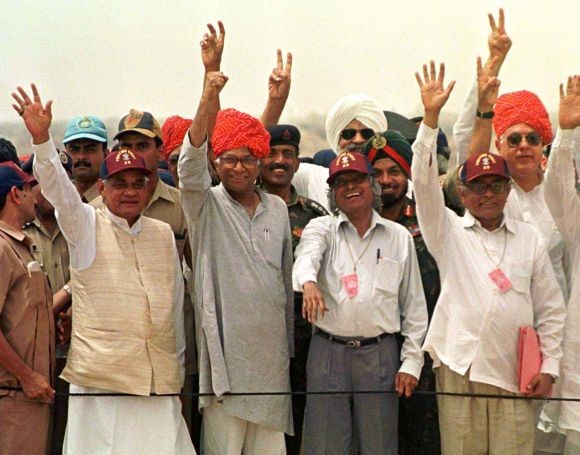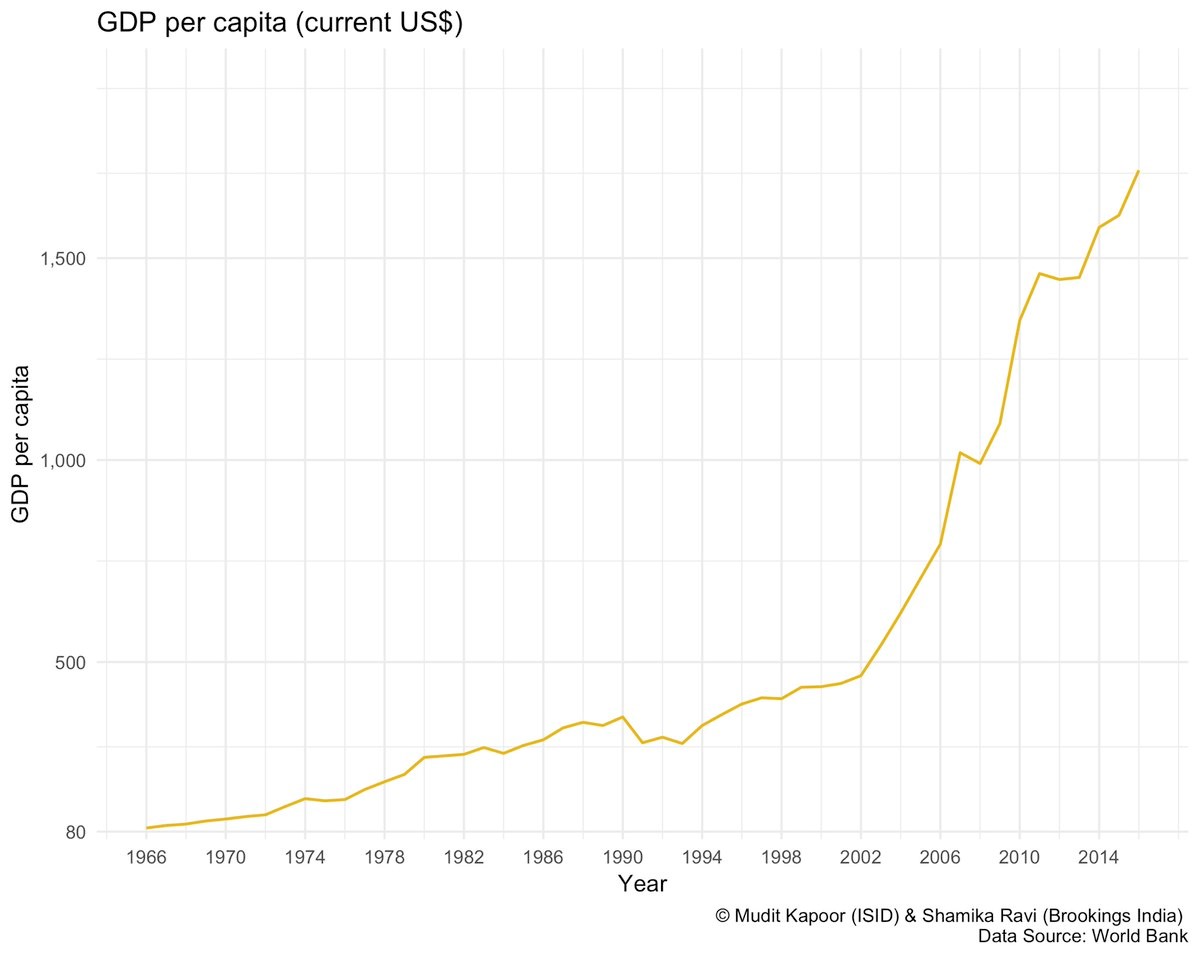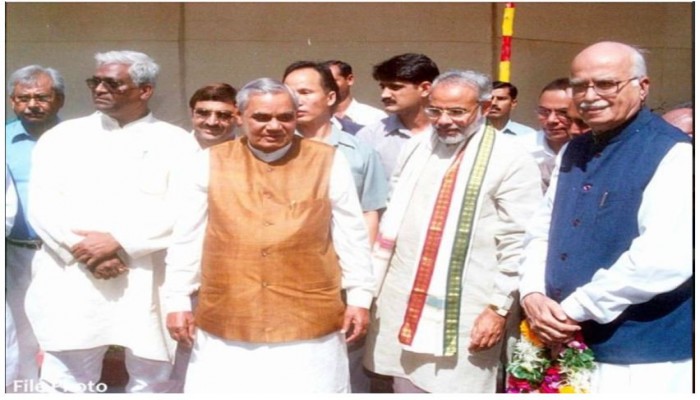Atal Bihari Vajpayee: The Man who transformed India- His life and his story
- In Politics
- 10:28 PM, Aug 18, 2018
- Shwetank Bhushan
"मौत की उम्र क्या दो पल भी नहीं,
जिंदगी-सिलसिला, आज कल की नहीं,
मैं जी भर जिया, मैं मन से मरूं,
लौटकर आऊंगा, कूच से क्यों डरूं?"
The most revered statesman in the post-independent political life of the country, our beloved former Prime Minister Atal Bihari Vajpayee, a Bharat Ratna in the real sense, has left for his eternal journey.
His leadership, foresight, maturity, and eloquence put him in a league of his own. An orator par excellence, who gave some of the memorable speeches that will remain etched in the annals of Indian parliamentary history.
Today when I sit in front of the TV screen watching the last rites of the man who sparked my interest in politics, it feels like a chapter of my own life has ended. With a heavy heart, I try to write about the life and times of our beloved Atalji and his legacy.
Early Years:
Born to Smt Krishna Devi and Shri Krishna Bihari Vajpayee on 25th December 1924 in a Brahmin family in Gwalior, Atalji learned poetry from his father. He studied from Saraswati Shishu Mandir and later graduated with distinction in Hindi, English, and Sanskrit. He also post-graduated in M.A. in Political science from DAV College, Kanpur.
Atalji wrote this poetry "हिन्दु तन मन हिन्दु जीवन रग-रग हिन्दु मेरा परिचय," when he was in class 10th.
He joined RSS in 1939 and attended its Officers Training Camp during 1940-44. His first exposure to politics was when he and his elder brother Prem were arrested for 23 days during the Quit India movement. He was sent to UP as a Vistarak of RSS and quickly began working for the newspapers of Pandit Deendayal Upadhyay's Rashtradharma. He became the first editor of Panchjanya (a Hindi weekly and in 1947 a full-time Pracharak of RSS.
In 1951, RSS seconded him to work for the newly formed Bhartiya Jana Sangh along with Pandit Deendayal Upadhyay, a Hindu right-wing political party founded by Dr. Syama Prasad Mookerjee. Atalji was elected to the Lok Sabha for the first time from Balrampur (U.P.) in 1957. By his oratorical and organizational skills, he became the face of the Jana Sangh. After the mysterious murder of Deendayal Upadhyay, the leadership of Jana Sangh fell on his young shoulders. In 1968, he became the national president of the Jana Sangh and led it to national prominence.
Political Struggle (1970 – 1995):
During the Emergency, Atalji was imprisoned along with several other opposition leaders. In 1977, heeding the call of Jayaprakash Narayan for all the opposition parties to unite against the Congress, Atalji merged the Jana Sangh with other parties to form the Janata Party that came victorious in the 1977 Elections. Atalji became the Foreign Minister in Morarji Desai's cabinet.
As India's external affairs minister, Atalji demonstrated the best of Indian diplomacy to a world driven by divisions of cold war. If on the one hand, he earned the trust of the then Soviet Union, on the other side he engaged the United States with a realism going beyond the then-dominant paradigm of non-alignment.
The Rise of Bharatiya Janata Party:
The Janata Party Government crumbled in 1979. But Atalji had established himself a respected political leader. He joined many of his Bharatiya Jana Sangh and Rashtriya Swayamsewak Sangh colleagues, mainly his long-time friends L. K. Advani and Bhairon Singh Shekhawat and formed the Bharatiya Janata Party (BJP) in 1980 and became the party's first president.
These men under the leadership of Atalji created the 'party with a difference' that made Crores of people believe that India is destined to rise again. AtalJi's first speech as BJP President: "अंधेरा छटेगा, सूरज निकलेगा, कमल खिलेगा"
Following Indira Gandhi's assassination, riding on a massive sympathy wave, BJP was left with only two seats in the 1984 election. During this period, Atalji remained center-stage as party President and Leader of the Opposition in Parliament. In the next elections in 1989 BJP won 88 seats. By 1991, BJP had emerged as the principal opposition party with 120 seats.
"अबकी बारी, अटल बिहारी"… "देश का नेता कैसा हो, अटल बिहारी जैसा हो" and "दृष्टि अटल पर, वोट कमल पर" were the slogans that we heard in our young age.
The Duo:
The most painful, poignant moment today was seeing Shri Lal Krishna Advani standing in silence like a stone with folded hands before the mortal remains of his friend of 65 years.

The Atal-Advani combination steered the BJP to heights and changed the course of Indian polity forever! They managed to cultivate friendship in a cut-throat competitive world of politics that lasted whole life with the vision to achieve their dream for a rising India. They converted India from a single-party rule to a certain two-pole system helping India's democracy more vibrant, more representative and rooted. Within their lifetime, they built the party from scratch, created an army of, Karyakartas, who our detractors call as Sanghis. A proud badge, we wear on our sleeves.
During those days, BJP became the political voice of the Ram Janmabhoomi Movement, which sought to build a temple dedicated to Shri Ram in Ayodhya. Behind BJP's rise will always be Advani's Rathyatra to build consensus for a grand Ram Mandir at Ayodhya.
On 5th November 1992 a day before the Kar Seva at Ayodhya, Atalji gave this brief speech. He was a magician of words. He would articulate in the manner no one else did. Say things without saying.
During one of the national conference in Mumbai in 1995, BJP President L.K. Advani declared that Atalji would be the Prime Ministerial candidate of BJP if it won the 1996 elections.
Atalji the Prime Minister:
In the 1996 Lok Sabha elections, BJP emerged as the single largest party and Atalji was sworn in as the Prime Minister. However, he resigned after 13 days for BJP no being able to obtain a majority. He gracefully put in his papers after one of his most famous speeches that came on the floor of the Parliament. "Here comes my resignation, Mr. Speaker!"
In 1998 after BJP once again emerged as the single largest party, Atalji was again sworn in as the Prime Minister and formed the National Democratic Alliance.
Just weeks after the new government took office India shocked the world by undertaking underground nuclear explosions in Pokhran, one of the hallmarks of Vajpayee's reign. Vajpayee's strategically important and courageous decision made India a nuclear weapons power even though it resulted in sanctions by the US and the European Union.

"Our nuclear weapons are meant purely as a deterrent against nuclear adventure by an adversary" announced PM Vajpayee. India entered a select group of nations and established India as a nuclear state. The country was able to develop a minimum credible deterrent to ward off threats to its security. This government lasted for 13 months.
First successful Coalition Government:
At a time when coalition politics was in its earlier stages in India, Atalji led a broad coalition of parties with diverse backgrounds and ideologies and became the first PM to lead such a government successfully. Atalji believed in India. He did not accept the mediocre present of the world's oldest, continuing civilization. He got the bomb, won a war, built roads, and transformed the economy.
Atal Ji's premiership was significant in shaping India's democracy and putting the country on the road to economic progress. But his tenure as PM was also full of troublesome events. A national crisis emerged when Pakistan-based extremist group Harkat-ul-Mujahideen hijacked Indian Airlines Flight IC-814 en route from Kathmandu to Delhi. Under extreme pressure, Atalji was forced to bow to the hijackers' demands. The Parliament was attacked in December 2001 by Pakistan trained terrorists. In 2002, communal riot in the state of Gujarat killed more than 1,000 people. Atalji officially condemned the violence. But his speech was twisted by media to ridicule then CM of Gujrat, where he said: "I completely believe Narendra Bhai is also performing Rajdharma."
Despite six tumultuous years he still managed to perform spectacularly on all fronts. His years in government saw governance and development take center.
Foreign policy:
In the post-Cold War world, Atalji boosted trade and bilateral relations with the US. Besides promoting economic ties between India and China, his government also initiated a structured mechanism for dialogue to resolve the border dispute between the two countries. Vajpayee's ‘Look East' policy helped in improving India's ties with countries in South-East Asia and East Asia.
In the aftermath of the nuclear tests, he went out of his way to prevent any escalation of the conflict with Pakistan. He boarded a bus to travel to Lahore to meet his counterpart, Nawaz Sharif. This incident became a symbol of international diplomacy, showed the world India's honesty and made an impact on the world community.
Later, this gesture of friendship turned out to be a betrayal of faith by Pakistan in Kargil. Atalji was hailed for his successful handling of the situation in repulsing back the intruders from the Indian soil which was a significant achievement of his government.
Economic policies:
Atalji's more significant achievements were on the economic front. A free marketeer by inclination, he was criticized for his policy of privatizing some of India's government-owned corporations. "We must grow faster. We have no other alternative" has been Atalji's slogan focusing mainly on economic empowerment of the rural poor.
His government pushed economic reforms ignoring the media nuisance. When Indian Economy's GDP growth rate was derogatorily called Hindu Rate of growth, Atalji aimed for 8%+ growth rate. The Op-ed writers were viciously critical, Sonia Gandhi went on to call it "मुंगेरी लाल के सपने." The GDP Growth rate in 2003-2004 hit 8.5%.
The GDP rate above 8%, inflation below 4% and overflowing forex-reserves were achieved through fiscal prudence. It was his Government that brought in the Fiscal Responsibility Act (FRBM) that was violated later by UPA rule.
Increasing foreign investment, modernization of public and industrial infrastructure, the creation of jobs, a growing high-tech and IT industry and urban modernization and expansion improved the nation's international image. His support for new hi-tech industries made India a global IT player and fuelled the country's economic development. This period was indicative of a forward-looking economy responding to the needs of the people.

Note the inflection point in India's growth story under Atalji which put us on a long-term high growth trajectory.
Passionate about Infrastructure:
The connectivity revolution that Atalji unleashed opened scores of opportunities which changed India forever. The National Highway Development Project and PradhanMantri Gram Sadak Yojana was his dream project which also included Golden Quadrilateral. We all have heard about the highways, airports and the mobile revolution which he not just conceptualized but also executed on the ground and connected India.
The highways underwent a dramatic change. If you see a road that connects your village to the nearby town, thanks to Atalji. The Modi Government should now name the GQ project after him as a fitting tribute. Before Atalji's Government, it was impossible for the salaried class to buy residential housing on EMIs. If your parents bought a home on affordable EMIs, thanks to Atalji.
The 'Rising-India' Debacle:
Unexpectedly, Congress emerged as the single largest party in the 2004 LS elections. We could not believe. How did that happen? The economic boom based on Atalji's policies was about to kick in. More dangerously, a vicious regime, known as the decade of decay followed, that almost wholly subverted his agenda and with it, the rise of India. Unfortunate for India, instead of building more roads, rail, metros like Atalji would have, Indians were handed over NREGA.
Atalji announced his retirement from active politics in 2005 and didn't contest the 2009 parliamentary elections. He suffered a stroke in 2009, which silenced the great orator.
Eternal Rest:
On the evening of 15th August when the whole nation was celebrating Independence Day, the news of Atalji's deteriorating health left, cast a grim mood. On 16th August, Atalji left us to proceed on his eternal journey.
Not surprisingly, after he is no more, those who treated Ataljilike an untouchable when he was active, started pretending to cry for him, embrace him as their own. Lest we forget, Sonia Gandhi had called Atalji a "traitor and a corrupt and what not.
Atalji said it on the floor of the Parliament: "ऐसा लगता है मेरे लिए अपशब्द ढूंढ़ने के लिए सारा शब्दकोष छान लिया गया है."
These venom spewing reptiles pretending to be respectful of him today say they love Atalji who was a good leader in a wrong party that was founded by Atalji. They like his poetry, his speeches, and his writings but despise Panchjanya and Organiser, that Ataljiji once founded and edited. He led Ram Mandir movement they detest, he conducted nuclear tests they denounced, and most importantly it was him who made Narendra Modi, the Chief Minister of Gujarat, the man they loathe.
Those who are praising Atalji today only to use him as a counter-point to Modi, to put him down, deceive you from the fact it is under Mr. Modi's leadership the BJP has reached the heights that Atalji wanted it to achieve. Did they award him the Bharat Ratna during ten years of UPA rule? No.
Don't be fooled by the praise being showered on Atalji by the gangrenous cabal of journalists. They hated him with the same passion when he was Prime Minister like they hate Mr. Modi now.
Today we stand at a similar crossroads as we did in 2004. The Modi Government has painfully removed the corrupt excesses of the Sonia-Manmohan rule. India is now likely to undergo its most significant economic boom in the next few years. India's middle class owe it to one man, the man who they defeated even though it was his hard work, governance, and leadership that added wings to their aspirations.
I can confidently say that Atalji must be a proud, content man as I see his disciple and present Prime Minister walking by his side on his final rites journey, on whose shoulders rests Atalji's life-long mission, of making India rise again. The highest tribute any Indian can give to Atal Bihari Vajpayee is not to deny Narendra Modi the chance which they refused to Atalji.







Comments